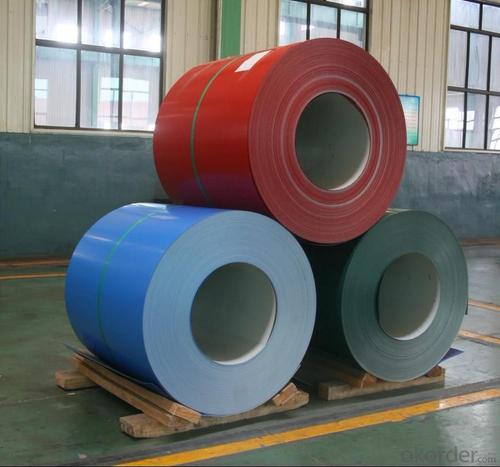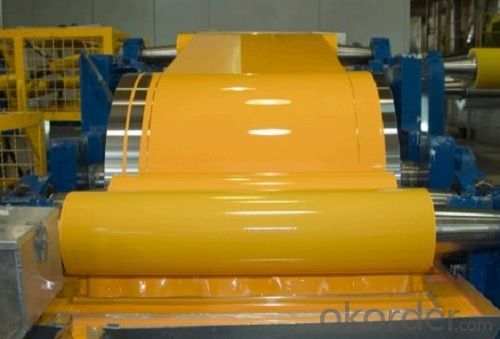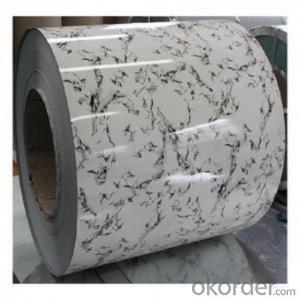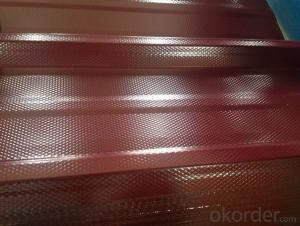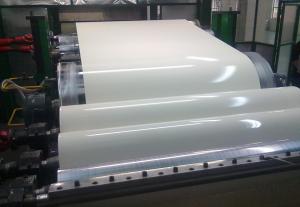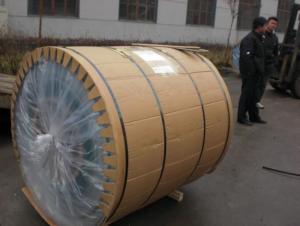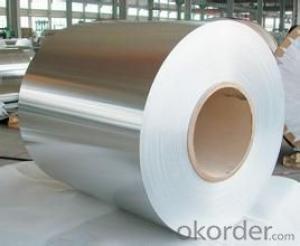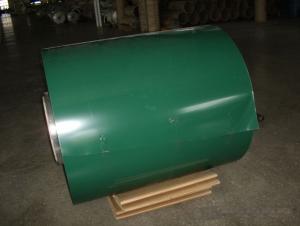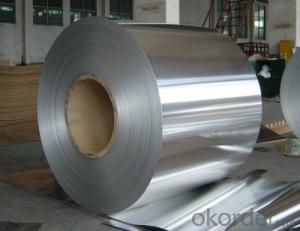Aluminum Coil Philippines for Roofing and Cladding System
- Loading Port:
- Shanghai
- Payment Terms:
- TT OR LC
- Min Order Qty:
- 5 m.t.
- Supply Capability:
- 5000 m.t./month
OKorder Service Pledge
OKorder Financial Service
You Might Also Like
l Product Description
Product | Color Coated Aluminum Coil for Roofing and Cladding System |
Thickness | 0.25mm-2.0mm |
Width | 30mm-1600mm |
inner diameter | 505mm (as per requirements) |
weight | 2000kg-3000kg |
Material | 1050,1060,1100,3003,3004,3105,5052,5005, 5754, etc |
Temper | O,H12,H14,H16,H18,H24,H26, H32, etc |
Surface | flat |
Minimum Order Quanlity | 5 tons per size |
Remark | Specific requirement of alloy grade,temper or specification can be discussed at your request |
l Packaging & Delivery
Packaging detail: Standard seaworthy exporting carton, Wooden
pallets, waterproof paper and plastic coverage or or
as customer's requirements
Delivery detail: about 25 days from received original L/C or advance
payment
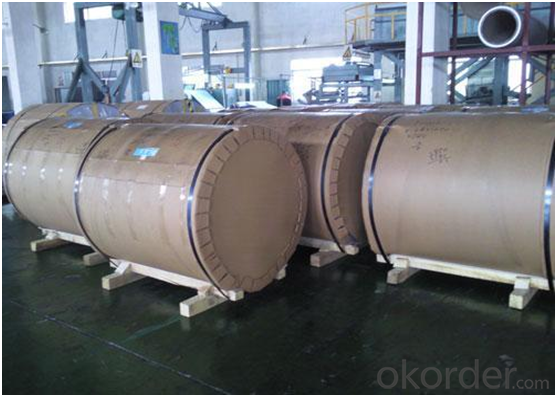
l Company Profile
CNBM International Corporation, China National Building Materials (Group) Corporation, is one of the largest companies in China building material & equipment industry, with 42,800 employees and sales in 2005 of US Dollar 4.395 billion. In 2006, China National Building Material Company Limited was listed on Hong Kong Stock Market with the stock code as 3323.
The business scope of CNBM covers from manufacturing and sales of a series of building materials to scientific research and design, import and export trade. In many of these fields, CNBM is playing the leading role.
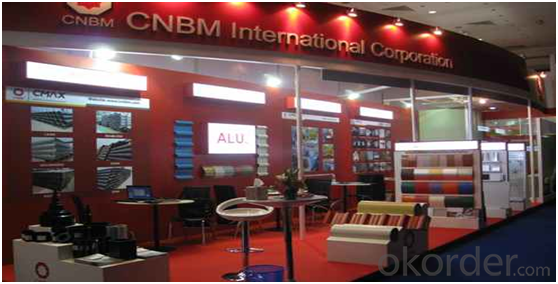
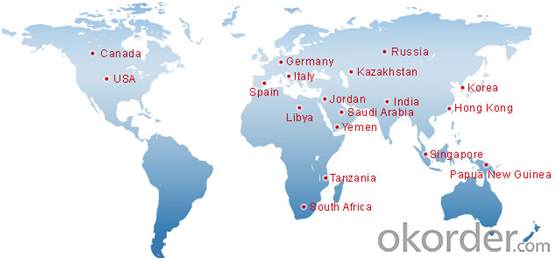
l Product Images
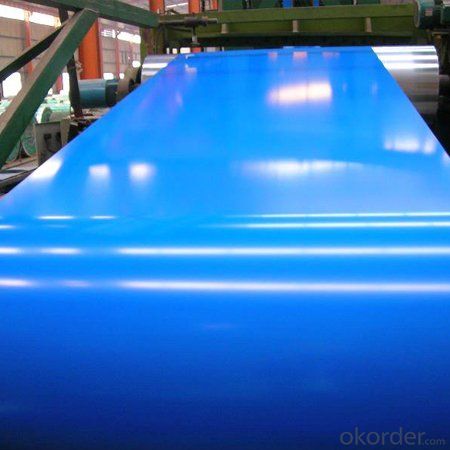
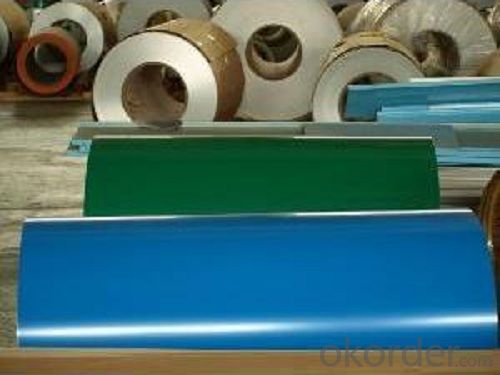
l FAQ
Q: Do you provide free samples?
A: Yes, free samples will be sent to you on freight at destination.
Q: Can I get your latest products catalogue?
A: Yes, it will be sent to you in no time.
Q: What is the MOQ?
A: 5 tons
Q: What are your payment terms?
A: We accept L/C, T/T.
l Contact us
Email:service@okorder.com
- Q: Are the currently rentable U-Haul trailers or trucks made out of aluminum or fiberglass? Thanks!
- most of them are aluminum
- Q: Can aluminum coils be used in HVAC heat exchangers?
- Yes, aluminum coils can be used in HVAC heat exchangers. Aluminum is a popular choice for heat exchangers due to its excellent thermal conductivity, light weight, and corrosion resistance. Aluminum coils are often used in air conditioning systems and heat pumps, where they transfer heat efficiently between the refrigerant and the surrounding air. Additionally, aluminum coils are easier to shape and form, allowing for more intricate designs and better heat transfer performance. Overall, aluminum coils are a reliable and effective choice for HVAC heat exchangers.
- Q: What are the different coil handling options available for aluminum coils?
- There are several coil handling options available for aluminum coils, depending on the specific requirements and preferences of the user. Some of the commonly used options include: 1. Coil Cradles: These are horizontal racks or frames on which the aluminum coils are placed. They provide support and stability to the coils during storage or transportation. Coil cradles are available in various sizes and designs to accommodate different coil dimensions. 2. Coil Cars: Coil cars are mobile platforms equipped with lifting mechanisms that allow for easy movement of aluminum coils. They are commonly used in manufacturing facilities where coils need to be transported between different processing stations. Coil cars can be manually operated or automated, depending on the level of automation desired. 3. Coil Turnstiles: Coil turnstiles are rotating devices that hold multiple coils vertically. They allow for easy access to individual coils without the need for heavy lifting or rearranging. Coil turnstiles are ideal for high-volume production environments where quick coil changeovers are required. 4. Coil Upenders: Coil upenders are specialized equipment used to rotate or flip aluminum coils to change their orientation. This is particularly useful when a coil needs to be loaded or unloaded from a vertical position, or when certain processes require a specific coil orientation. 5. Coil Lifters: Coil lifters are a type of lifting device specifically designed to handle aluminum coils. They typically feature adjustable arms or clamps that securely grip the coil, allowing for safe and efficient lifting. Coil lifters come in various configurations, including manual, semi-automatic, and fully automated models. 6. Coil Tippers: Coil tippers are used to tilt or incline aluminum coils for various purposes, such as facilitating coil feeding into processing machines or enabling easier coil inspection. They can be operated manually or powered by hydraulic or pneumatic systems. 7. Coil Stackers: Coil stackers are used to neatly stack and store aluminum coils vertically. They typically feature adjustable arms or forks that can be raised or lowered to accommodate different coil sizes. Coil stackers help optimize storage space and ensure easy access to coils when needed. These are just a few examples of the coil handling options available for aluminum coils. Each option offers its own advantages and may be suitable for different applications or industries. It is important to carefully consider the specific requirements and constraints before selecting the most appropriate coil handling solution.
- Q: What is the average lifespan of an aluminum coil?
- The lifespan of an aluminum coil can differ depending on several factors, including the quality of the aluminum, the environment it encounters, and the level of maintenance and care it receives. Generally, aluminum coils are known for being durable and having a long lifespan. Typically, a properly installed and well-maintained aluminum coil can endure for 15 to 30 years. However, it is essential to note that this is merely an average estimation, and some coils may last even longer if properly cared for. Various elements can impact the longevity of an aluminum coil, such as exposure to severe weather conditions like extreme heat, cold, or humidity, as well as exposure to corrosive substances or chemicals. Consistently cleaning and maintaining the coil, including the removal of debris and addressing any signs of damage or wear, can also assist in extending its lifespan. To summarize, the average lifespan of an aluminum coil usually ranges from 15 to 30 years, but it is crucial to consider multiple factors that can influence its durability. Regular maintenance and appropriate care can significantly prolong the lifespan of an aluminum coil.
- Q: What types of aluminum coils are there that are designed for particular applications?
- <p>Yes, there are various types of aluminum coils designed for specific purposes. For instance, there are coils for construction, which are often used for roofing and siding. Coils for automotive applications are used in manufacturing car parts. Reflective coils are ideal for heat reflection in industries like food processing. Coils for electrical applications are used in transformers and wiring. Each type has specific properties like thickness, strength, and surface finish tailored to meet the requirements of their respective industries.</p>
- Q: Are aluminum coils resistant to impact damage?
- Yes, aluminum coils are generally resistant to impact damage. Aluminum is known for its high strength-to-weight ratio and excellent durability, which makes it less susceptible to impact damage compared to other materials. Additionally, aluminum coils are often used in various industries where they are exposed to various environmental conditions and handling processes, and they are designed to withstand such impacts without getting damaged easily. However, it is important to note that the level of resistance to impact damage can vary depending on the specific thickness, quality, and design of the aluminum coil.
- Q: How do aluminum coils compare to other types of metal coils?
- Aluminum coils are lighter in weight compared to other types of metal coils, making them easier to handle and install. They also have excellent corrosion resistance, ensuring durability and longevity. Additionally, aluminum coils have good thermal conductivity, allowing for efficient heat transfer. However, they may have lower tensile strength compared to certain other metal coils. Overall, aluminum coils offer several advantages and are commonly used in various industries including HVAC and automotive.
- Q: We have all heard the Us saying aluminum and their euro counterparts saying aluminium. I assumed this was just a small difference in culture or location. But, while reading my chemistry book (Chemistry the Central Science 12th) i came across a section saying: Cations formed from nonmetal atoms have names that end in -ium: NH4+ ammonIUM ion, H3O+ hydronIUM ion. So, i have came up with a hypothesis, could it be possible that when the periodic table was coming together, the aluminium was changed to aluminum to allow the rules to work? Thus making aluminum the correct spelling? Give me your thoughts.
- It just depends on which side of the Atlantic Ocean you live. Come to think of it though, most metals end in ium. Not just the ions.
- Q: This question asks for methods to take care of and preserve aluminum coils, ensuring their longevity and functionality.
- <p>To maintain aluminum coils, follow these steps: Keep them clean by wiping off any dust or debris. Store them in a dry environment to prevent corrosion. Avoid stacking heavy objects on top to prevent deformation. Regularly inspect for any signs of damage or wear. Use appropriate handling equipment to avoid scratches or dents. Apply a protective coating if exposed to harsh conditions. Ensure proper ventilation during storage to prevent condensation. By following these practices, you can prolong the life and maintain the quality of aluminum coils.</p>
- Q: What are the potential applications of color-coated aluminum coils?
- Color-coated aluminum coils have a wide range of potential applications due to their versatility and durability. One of the main uses of these coils is in the construction industry. They can be used for cladding buildings, roofs, and facades, providing an aesthetically pleasing and long-lasting solution. The color coating on the aluminum coils not only adds visual appeal but also protects the metal from corrosion and environmental damage. Another application of color-coated aluminum coils is in the manufacturing of transportation vehicles. These coils can be used for making panels, doors, and other parts of automobiles, trucks, and trailers. The color coating not only enhances the appearance but also offers protection against harsh weather conditions, UV rays, and other external factors. Color-coated aluminum coils are also commonly used in the production of household appliances. They can be used for manufacturing kitchen appliances, such as refrigerators, ovens, and microwave ovens, as well as for creating decorative elements in interior design, such as wall panels, ceilings, and furniture. Furthermore, color-coated aluminum coils find applications in the signage industry. They can be easily shaped, cut, and formed into various sizes and shapes, making them ideal for creating eye-catching signs, billboards, and advertising displays. The color coating ensures that the signs remain vibrant and attractive for an extended period. In addition to these industries, color-coated aluminum coils are also used in the manufacturing of electronic products, such as laptops, smartphones, and tablets. The coils can be used for creating casings, frames, and other parts that require both durability and aesthetic appeal. Overall, the potential applications of color-coated aluminum coils are vast and diverse. Their versatility, durability, and aesthetic appeal make them an excellent choice for various industries, including construction, transportation, household appliances, signage, and electronics.
Send your message to us
Aluminum Coil Philippines for Roofing and Cladding System
- Loading Port:
- Shanghai
- Payment Terms:
- TT OR LC
- Min Order Qty:
- 5 m.t.
- Supply Capability:
- 5000 m.t./month
OKorder Service Pledge
OKorder Financial Service
Similar products
Hot products
Hot Searches
Related keywords



